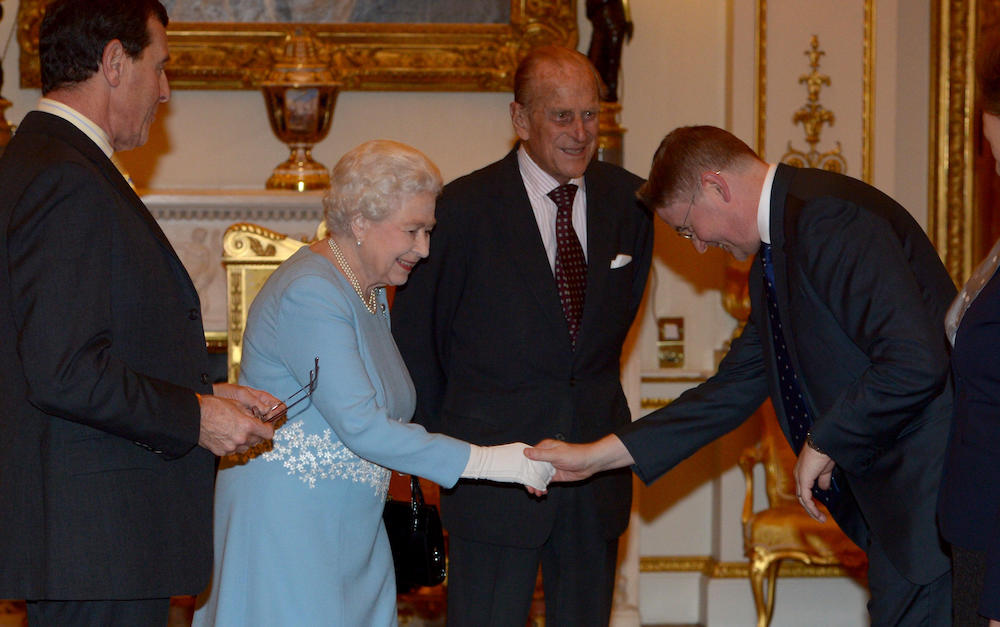 "The Queen asked: 'What else can I do for you?' I told her we were looking for a new venue for the Civil Service Awards. She said: 'How about Buckingham Palace?'"
"The Queen asked: 'What else can I do for you?' I told her we were looking for a new venue for the Civil Service Awards. She said: 'How about Buckingham Palace?'"
The Queen was the ultimate public servant. She got what public service is all about and she therefore had huge respect for public servants, and civil servants in particular.
During the coalition talks I was working closely with Christopher Geidt [then the Queen’s private secretary], and the intention was actually to keep the Queen above it all and to stop her getting dragged into this or that faction. That worked very successfully, and she was very pleased by that. She invited “the Golden Triangle” – namely the cabinet secretary, the Queen’s principal private secretary and the prime minister’s private secretary, who in this case was the late, great Jeremy Heywood – to the palace for a very intimate lunch, in which she displayed her interest in all things civil service-wide. As a result of that, I explained to her about our Wednesday Morning Colleagues meetings [of permanent secretaries] and she said that it sounded really interesting, so I said “Well, come along!” – and she did. I think some of the attendees were quite nervous: I’ve never seen so many haircuts, new suits, dresses. It was the best turned-out set of perm secs I’ve ever had. And they were all there, surprise surprise, including heads of agencies. A full register, and on their best behaviour.
Then after that she said: “What else can I do for you?” Well, you will remember that I launched the Civil Service Awards in 2006, which we had done at Lancaster House. I told her we were looking for a new venue. She said: “How about Buckingham Palace?” I asked her if she was kidding, but she assured me she wasn’t, so we did it at Buckingham Palace. She and Prince Philip spent a lot of time at the Awards themselves, speaking to different groups of officials, which was wonderful.
"When the Queen came to our Wednesday Morning Colleagues meetings, everyone was on their best behaviour. I’ve never seen so many haircuts, new suits, dresses"
One general point is that I think she did a great service to everybody, particularly to cabinet secretaries, by her weekly audiences with the prime minister. It was a bit of a mutual therapy session. They would go in and talk to each other about anything. And it was one of those meetings where afterwards it was don’t-ask-don’t-tell: I never asked prime ministers what had gone on, and they never told me. But they always seemed to find it very reassuring, and they came back happier. I think they were talking about the wicked problems of the day, but both of them would have their own personal wicked problems. Like during John Major’s time – the whole Diana and Charles issue was really complicated and very hard for the Queen. And later on there were all sorts of other issues that would have come up which prime ministers would have found very hard. So for both of them, they could pour out what they really thought, knowing it wouldn’t go anywhere.
Another story that springs to mind is the time that [US Federal Reserve chairman] Alan Greenspan had been given an honorary knighthood by Gordon Brown. Because of last-minute parliamentary business, Gordon couldn’t go up with Alan to see the Queen at Balmoral, so I went instead. We were going to do a tour of the estate and then go in for lunch, but because the weather was bad, the plane was delayed. So instead we went straight into this very intimate lunch with the Queen and members of her family, the corgis round our feet. She sat next to Alan Greenspan and asked him something like “how’s the US economy doing?” and Alan being Alan went into a very detailed description of the state of the US economy – you know, third-quarter GDP changes – and I could see she wasn’t completely… I don’t think she was intimately acquainted with the various indices of growth in the US economy. But she was she was incredibly polite about it all. She was very good in situations like that.
– Lord Gus O’Donnell, cabinet secretary, 2005-2011
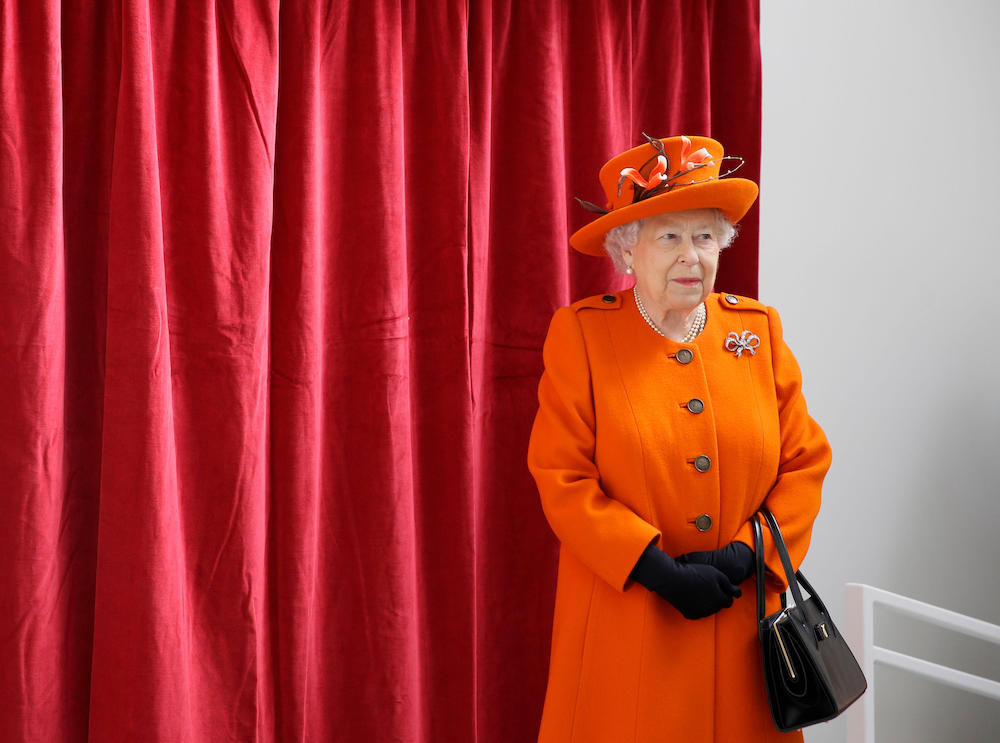 "The Queen was a generous host with a mischievous sense of humour, no more so than at Balmoral which she loved because, as she told me once, here I sleep in the same bed for six weeks"
"The Queen was a generous host with a mischievous sense of humour, no more so than at Balmoral which she loved because, as she told me once, here I sleep in the same bed for six weeks"
Having worked for a number of years at the interface of No 10 and the Palace I came to admire Queen Elizabeth II greatly, for the way she conducted herself and the example she set for others. Put simply, she was extremely good at her job. At the start of her reign she lamented that the early death of her father meant she had not served much of an apprenticeship. Nevertheless she took to the role of Monarch and made a success of it.
The monarchy embodies a paradox at its heart. To uphold the dignity and authority of the Crown the monarch had to be above the fray. But to fulfil the role she also had to know intimately the concerns and hopes of her subjects. not just in Britain but across all her realms. To bridge that gap required a lot of hard work, reading her official papers and briefing herself on those she was about to meet. Apart from her Christmas messages, she rarely addressed the nation directly. But when did so she invariably struck the right note, offering comfort and reassurance.
She also fully understood the mysteries of a constitutional monarch, to hold power over politicians e.g. on who formed the next government, but only so long as she never had to exercise that power:; and to avoid any public comment on Government policy.
The Queen always looked for the positive in whatever she was doing. She was a generous host with a mischievous sense of humour, no more so than at Balmoral which she loved because, as she told me once, here I sleep in the same bed for six weeks.
My final reflection is sad one - her example in terms of conduct has set a standard from which the current public discourse in politics and media is falling short
However, the patience and commitment of the thousands who wished to pay their last respects, and queued for many hours to do so, shows that in society at large there is a deep longing for the values she embodied, decency, service, selflessness, tolerance and pride in our long a history. All these are her legacy.
Lord Andrew Turnbull, cabinet secretary 2002 -2005
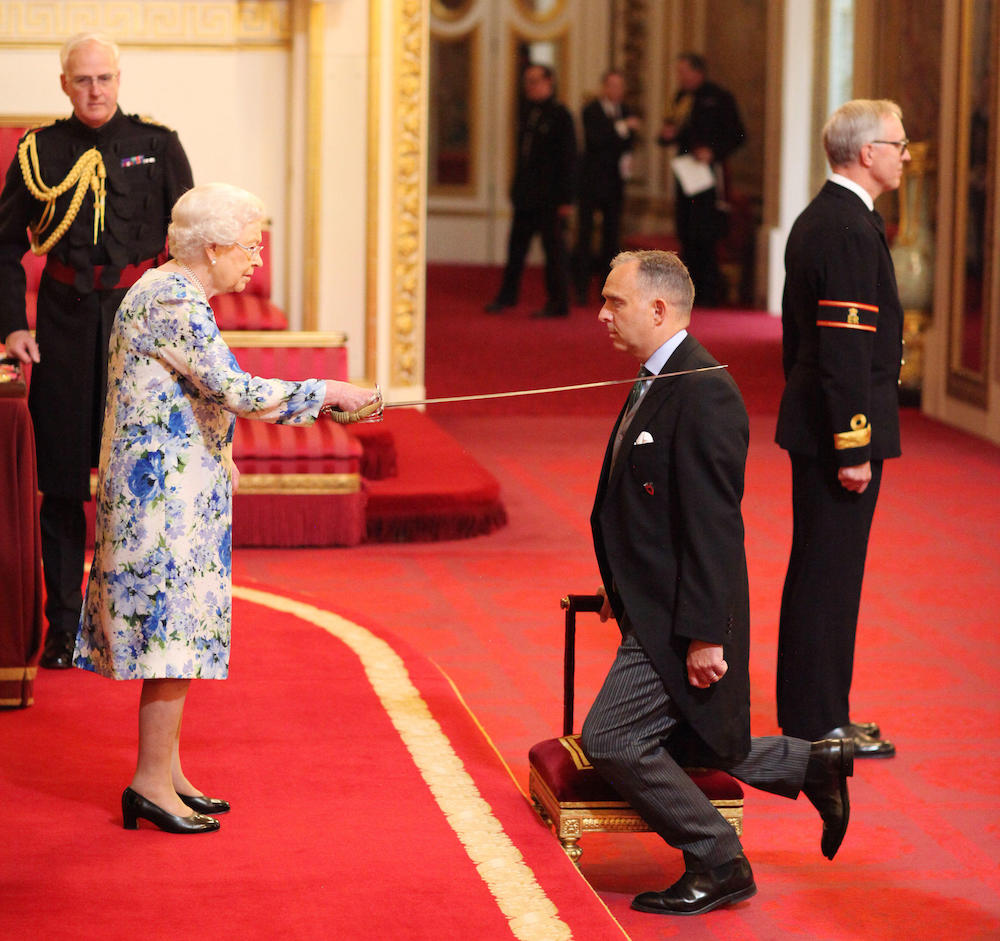
“She had a remarkable ability to make everyone feel special. After an event at the Home Office, I overheard at least three people claim she had spent more time with them than anyone else”
I suspect I learnt of the death of HM Queen Elizabeth II slightly before many others. Not because I had access to privileged information (those days are long gone), but because I have a teenager and social media was inevitably quicker off the mark than the mainstream channels. I was struck that the younger generation, who knew the Queen only as an elderly great-grandmother, were as stunned and upset by her loss as their elders, for whom she had been a source of loyalty, unity and stability for decades.
Several years ago, the late Queen expressed an interest in visiting and thanking the civil service for our work: her civil service, as my distinguished predecessor Robin Butler has reminded us. We hosted her at the Home Office and brought in civil and public servants representing the huge diversity of our activities in a “market stall” format to enable her to see as many different people and functions as the time permitted. As always, she displayed that remarkable quality of making everyone feel not just special but most special; I overheard at least three people claim afterwards that she had spent more time with them than anyone else.
A colleague’s young daughter, who had the task of presenting a bouquet, froze, mesmerised. The Queen bent down, smiled that joyful smile, and asked whether the flowers were for her"
As the visit drew to a close, a colleague’s young daughter, who had the task of presenting a bouquet, froze, mesmerised by the moment. The Queen bent down, smiled that joyful smile, and asked whether the flowers were for her. Tension broken, the presentation went ahead. In delivering a vote of thanks, I referred to values shared across the public service and called for a show of appreciation for the nation’s greatest public servant. The cheers almost took the roof off.
I also had the occasional private audience with the Queen when, as cabinet secretary, I was part of the “Golden Triangle” with the PM’s and her private secretaries, supporting the crucial constitutional relationship between head of state and head of government, and had a glimpse into why all her 15 prime ministers valued so much their weekly audiences.
It is that unique blend of wisdom, warmth and wit – bridging the deep responsibilities of head of state with the personal qualities to connect with the hearts of our youngest citizens – that I shall always remember when I think of her. Thank you, Ma’am for a life of extraordinary service. God bless you. And God save the King.
– Lord Mark Sedwill, cabinet secretary, 2018-2020
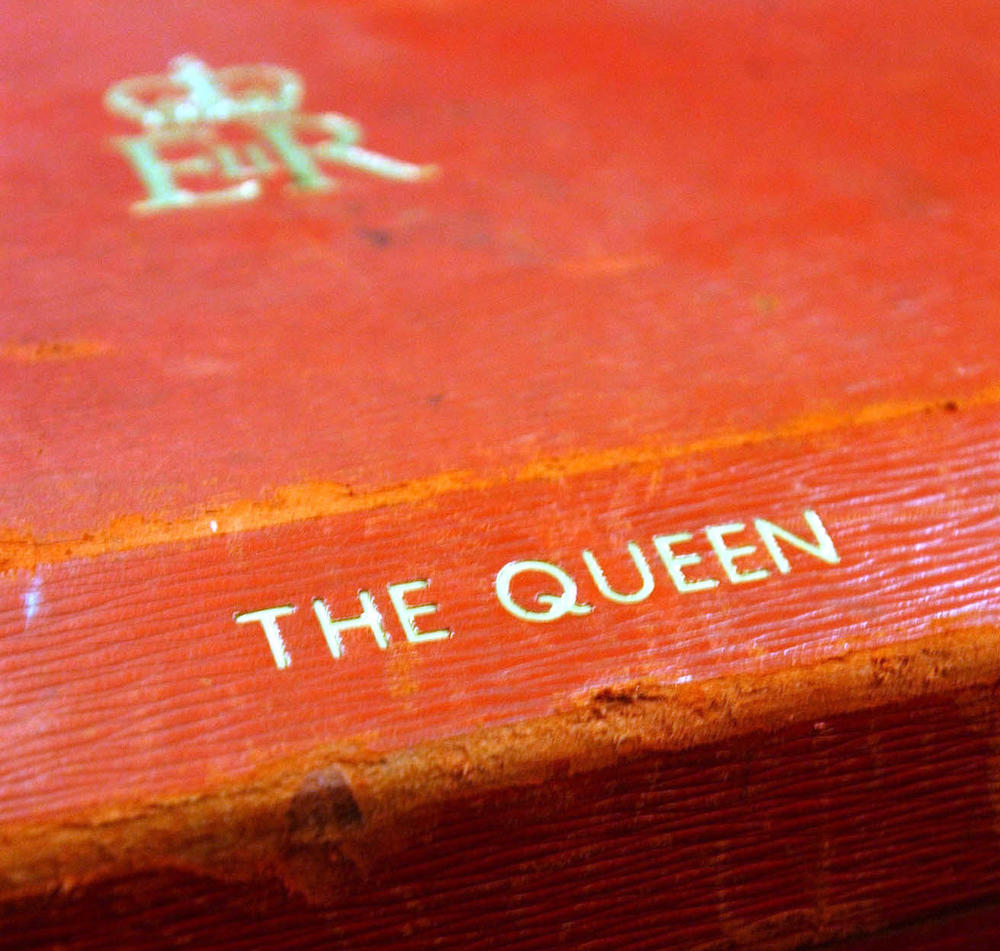 "She was a monarch of great wisdom and dignity. She will stand out in the history of our times'"
"She was a monarch of great wisdom and dignity. She will stand out in the history of our times'"
Our late Queen well understood the constitutional principles which underpin the civil service and knew our history.
As head of the service I once attended a dinner at Windsor Castle. At the end of the dinner she took me to the library and showed me handwritten letters which Disraeli had written to Queen Victoria after each cabinet meeting, recounting their discussions in detail. She remarked that prime ministers no longer had the time to write such letters. I agreed and said I wasn’t going to try to make Mr Blair write them to her. She went on to say that cabinet minutes had originally been introduced to keep the monarch in touch with current discussions, in place of the letters previously written by prime ministers. That was why she got copy number 01 each week (this was in the days of paper copies). A small detail, perhaps, but a neat way of reminding me of the constitutional relationships.
It was an honour to be in the service of the Queen. She was a monarch of great wisdom and dignity. She will stand out in the history of our times. We were lucky to have her for so long.
– Lord Richard Wilson, cabinet secretary, 1998-2002
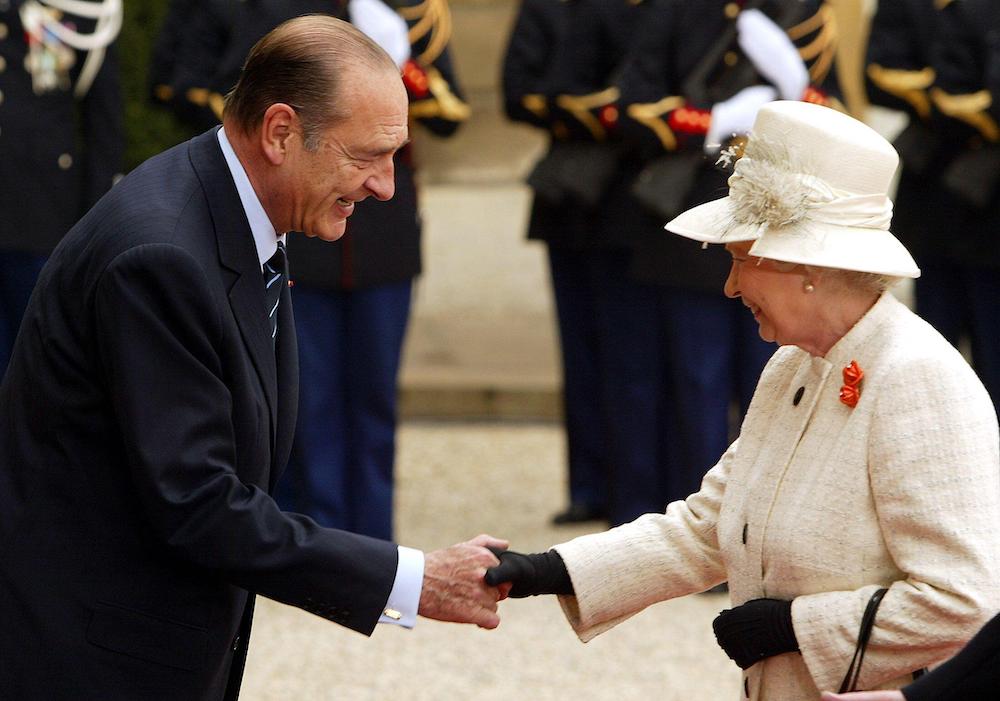 "They say you should never meet your heroes. I am glad I got to know mine'"
"They say you should never meet your heroes. I am glad I got to know mine'"
Right: The Queen with French president Jacques Chirac, 2004
They say you should never meet your heroes. The late Queen was a hero from the beginning of my career. From the time I joined the Foreign Office in 1982, it was apparent that Queen Elizabeth II was the UK’s top diplomatic asset. Her state visits were defining moments in the UK’s relations with every country she visited; and heads of state vied for invitations to come to London.
I saw at first hand her soothing influence when helping to organise the state visit of King Fahd to the UK in 1987. Basically, the king of Saudi Arabia was enchanted by the Queen. The visit to Ireland in 2011 – the first by a British monarch to the Republic – was epoch-making from the moment the Queen arrived in Dublin wearing a dress in the exact shade of green in the Irish tricolour. To this day, Irish diplomats tell me of the lingering positive effects of the visit.
I saw her impact when I was ambassador to Germany, where she paid her final state visit in 2015. At the state banquet in Berlin, every German gasped when the Queen mentioned her meetings with Konrad Adenauer, the Federal Republic’s founding father, who died in 1967, before many of them had been born.
"The Queen was masterly: welcoming, warm, knowledgeable and humorous, and all these good things invariably"
Later that year I became PUS. For the next five years, I saw the Queen every week she was in London. I was present when new ambassadors and high commissioners presented their credentials. The Queen was masterly: welcoming, warm, knowledgeable and humorous, and all these good things invariably. Their excellencies left with memories they would remember forever and a determination to make good bilateral relations even better.
Regular contact reinforced my admiration for the Queen. I am glad I got to know my hero. She deserves all the plaudits heaped upon her in the last few days, a kind, constant, unflappable, wise and humble person. And the perfect Queen.
– Lord Simon McDonald, permanent under-secretary of the Foreign and Commonwealth Office, 2015-2020
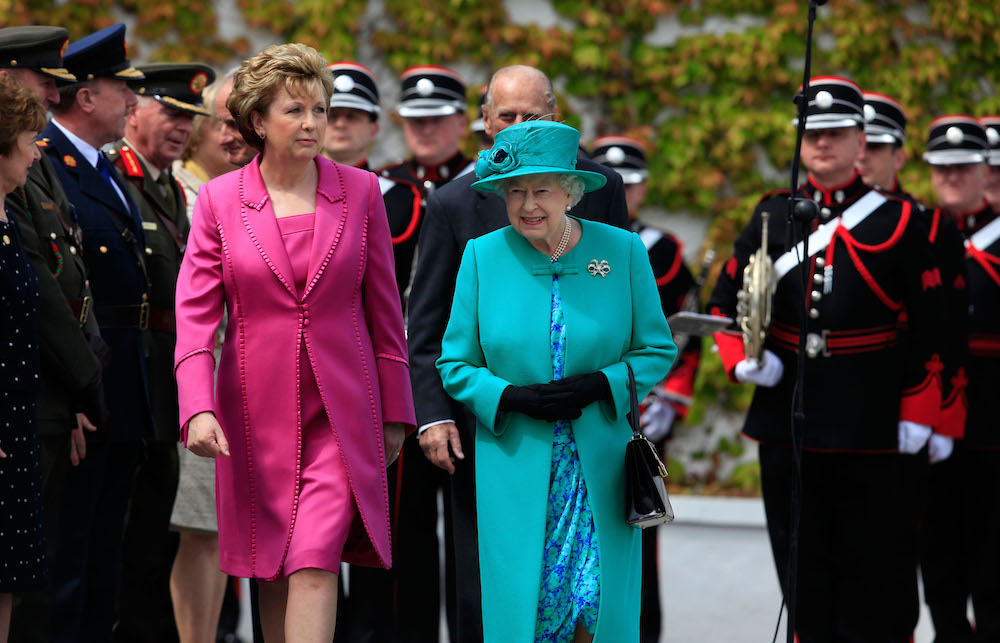 “She embodied values people associate with the best of our country – modesty, humour, propriety, and unflinching determination”
“She embodied values people associate with the best of our country – modesty, humour, propriety, and unflinching determination”
Right: Queen Elizabeth with Irish president Mary McAleese, 2011
During my career Queen Elizabeth was the most effective and enduring source of British soft power. She played a leading role in historic events most of us have only read about. World War II, Korea, Suez, decolonisation, the Cold War, the fall of the Berlin Wall.
Even those who contest our imperial and colonial past could not fail to respect her. She embodied values people associate with the best of our country – modesty, humour, propriety, and unflinching determination.
Her 2011 state visit to Ireland was a personal triumph. In 2012 we were delighted that the very last official act of her Diamond Jubilee year was to visit the Foreign Office and meet our staff.
As permanent under-secretary, sporting my braided uniform and ostrich-feather hat, I would attend audiences at the Palace when Her Majesty received new ambassadors.
I was briefed on the ambassador and country in question, but she was always a step ahead. How could I compete? She had usually visited the country in question several times, and knew not only the prime minister, monarch, or president, but also their predecessors and parents.
– Sir Simon Fraser, permanent under-secretary of the Foreign and Commonwealth Office, 2010-2015
 “I believe Her Majesty Queen Elizabeth II will be seen as the most successful monarch ever to reign in British history”
“I believe Her Majesty Queen Elizabeth II will be seen as the most successful monarch ever to reign in British history”
Right: The Queen talking to Dame Janet Paraskeva, a former first civil service commissioner
“Her Majesty Queen Elizabeth II carried out her duties with grace and deep understanding of the issues of the day. She made fulfilling these duties look so effortless and she has been with us for so long, that we may not always have fully appreciated how integral a role she played in the British Constitution and how much she gave to this country.
As a privy councillor I witnessed her signing Orders in Council and as an MP and later as a member of the House of Lords I would be one of the hundreds of parliamentarians being present at the state opening.
I believe Her Majesty Queen Elizabeth II will be seen as the most successful monarch ever to reign in British history. She was our Queen, a great grandmother, grandmother, mother and wife and as she put it herself – a servant to this nation. She was truly remarkable.
She has also been a constant and consistent foundation for the civil service The absolute loyalty of the civil service was to Her Majesty the Queen, and through her, to her government. We now have a new monarch, King Charles III, who will seamlessly take over this role. Many of us may feel that we are not yet fully prepared for the change, but he clearly is. And the civil service will serve him with the same loyalty and dedication they showed to his mother.”
– Baroness Gisela Stuart, first civil service commissioner and a former Labour MP
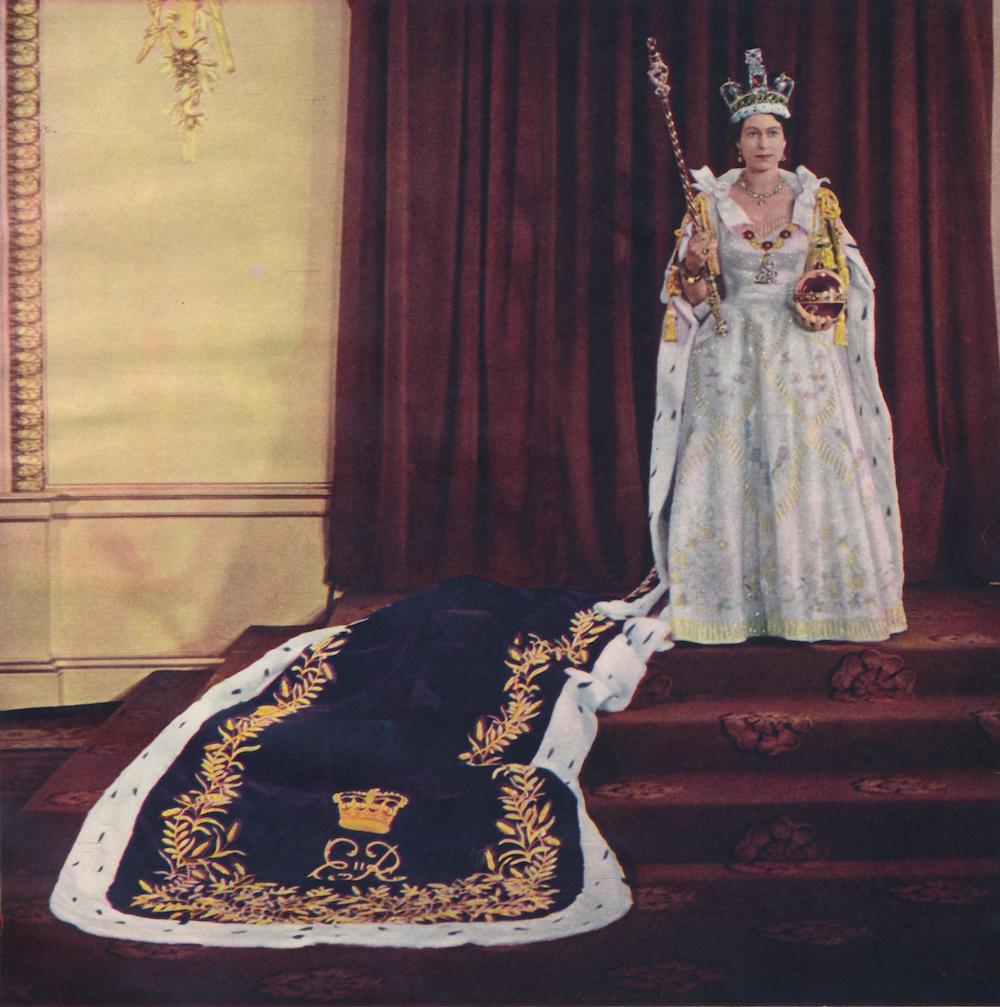 "This higher loyalty to The Queen was an incentive to try to aspire to her example of service to the nation'"
"This higher loyalty to The Queen was an incentive to try to aspire to her example of service to the nation'"
Right: Queen Elizabeth II in coronation robes, 1953
" During my career I always tried to remind myself that, like Her Majesty's Armed Forces and Her Majesty's Judges, I was a member of Her Majesty's civil service. My loyalty to the government depended on the fact that it was Her Majesty's government, namely the government which The Queen had appointed. This higher loyalty to The Queen was an incentive to try to aspire to her example of service to the nation."
– Lord Robin Butler, cabinet secretary, 1988–1998